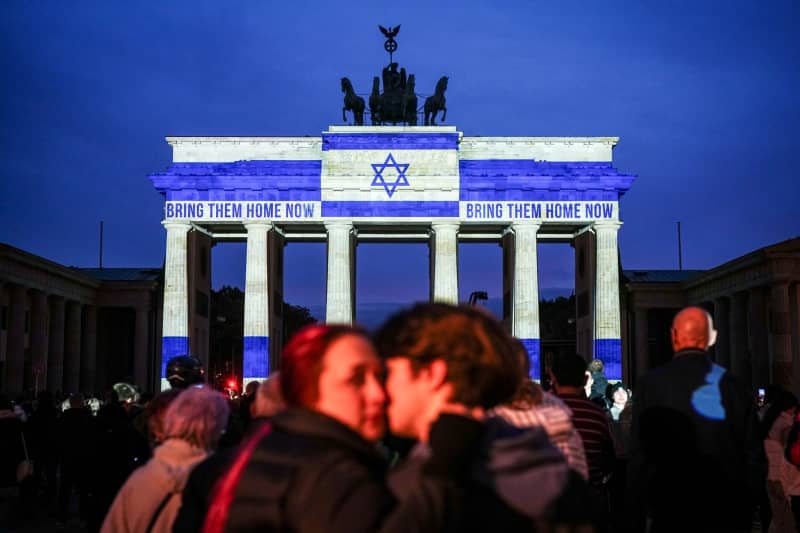On October 7, 2023, Hamas initiated a surprise military offensive against Israel, launching a considerable barrage of rocket fire and executing ground infiltrations from the Gaza Strip. This unprecedented assault led to significant casualties and resulted in several hostages being taken. The immediate aftermath saw the Israeli government declaring war on Hamas and the Gaza enclave, plunging the region into a full-scale conflict that sparked widespread unrest across the Middle East. This violent resurgence underscored the persistent volatility in the longstanding Israeli-Palestinian conflict and revealed the deep tensions that continue to affect the region and beyond.
In response to this tragic event, Berlin, Germany, displayed its solidarity with Israel by illuminating the iconic Brandenburg Gate with the colors of the Israeli flag. This act was not merely ceremonial; it represented a global gesture of support amidst a growing crisis. Berlin Mayor Kai Wegner emphasized this sentiment, stating that the initiative intended to send a clear signal to the world that Berlin stands with Israel. He articulated the broader hope that humanity and compassion would prevail over hatred, highlighting the city’s historical commitment to freedom and solidarity with oppressed populations.
The Brandenburg Gate, a historic symbol of Berlin and German reunification, has repeatedly been used as a canvas for political and social messages. On the anniversary of the attacks, the landmark was also adorned with the phrase “Bring them home now,” which emphasizes urgent calls for the safe return of hostages taken during the Hamas insurgency. This slogan resonates deeply among the families and supporters of those captured, underscoring the human cost of the conflict beyond mere political rhetoric. The illumination of the Gate serves as a reminder of the individual lives impacted by the warfare and a call for action.
The lighting of the Brandenburg Gate to honor the victims and express solidarity with Israel connects to a broader recognition of the humanitarian crisis unfolding in Gaza amid the conflict. As Israel commenced military operations targeting Hamas in response to the attacks, civilian populations on both sides faced dire consequences. The escalation in military action has led to extensive casualties and destruction in Gaza, exacerbating the already desperate humanitarian situation. Consequently, international leaders and humanitarian organizations have been vocal in their calls for a ceasefire and emphasized the necessity of protecting civilians in conflict zones.
As the situation in the Middle East continues to evolve, global reactions vary widely, demonstrating how deeply entrenched the issue is within international politics and public opinion. Many nations have condemned the violence perpetrated by Hamas while urging Israel to exercise restraint in its military response. Amid the complexities of the situation, numerous protests and demonstrations have been held worldwide, indicating a strong divided opinion regarding support for Israel versus advocacy for Palestinian rights and independence. This polarization reflects a long-standing geopolitical mixture where historical grievances and contemporary politics intertwine.
In a world increasingly interconnected through social media and global communication, the Brandenburg Gate’s illumination serves as a poignant example of how symbols can be mobilized to express collective sentiments. As the anniversary of the October 7th attacks draws public and media attention, the act of projecting the Israeli flag onto the Gate not only signifies historical remembrance but also presents a contemporary narrative of unity against violence and hatred. In a tumultuous environment where peace seems elusive, such actions remind us of the enduring importance of human empathy and the pursuit of dialogue amidst conflict.

